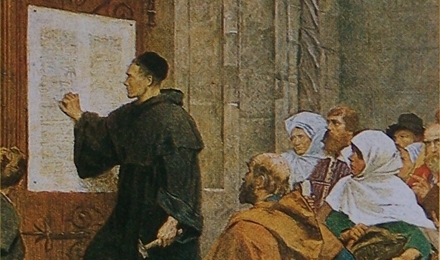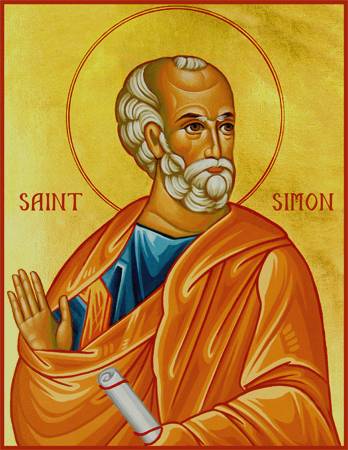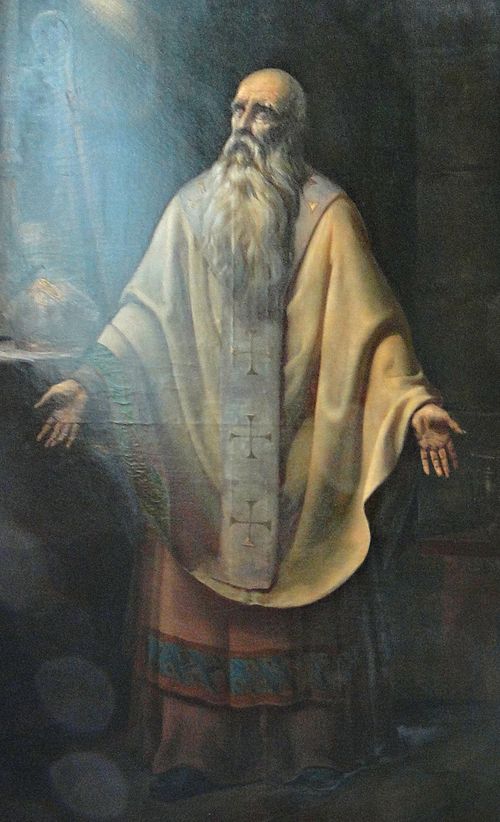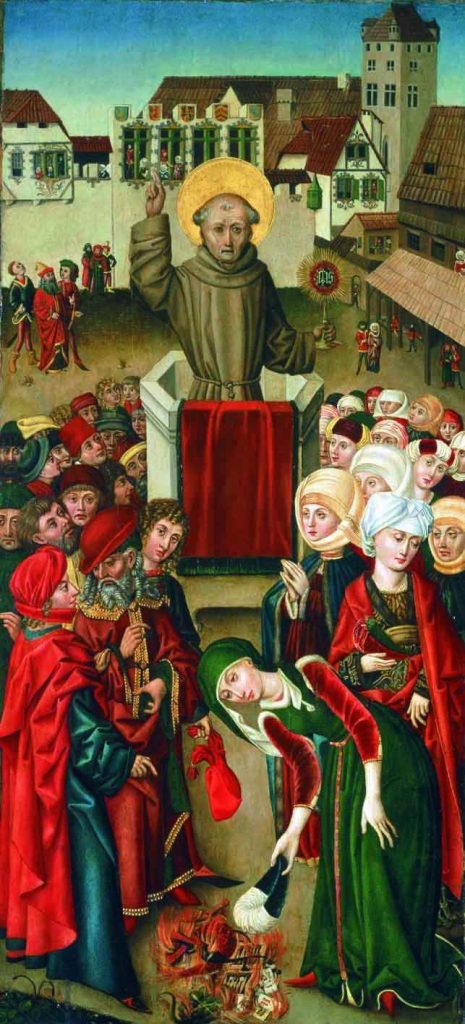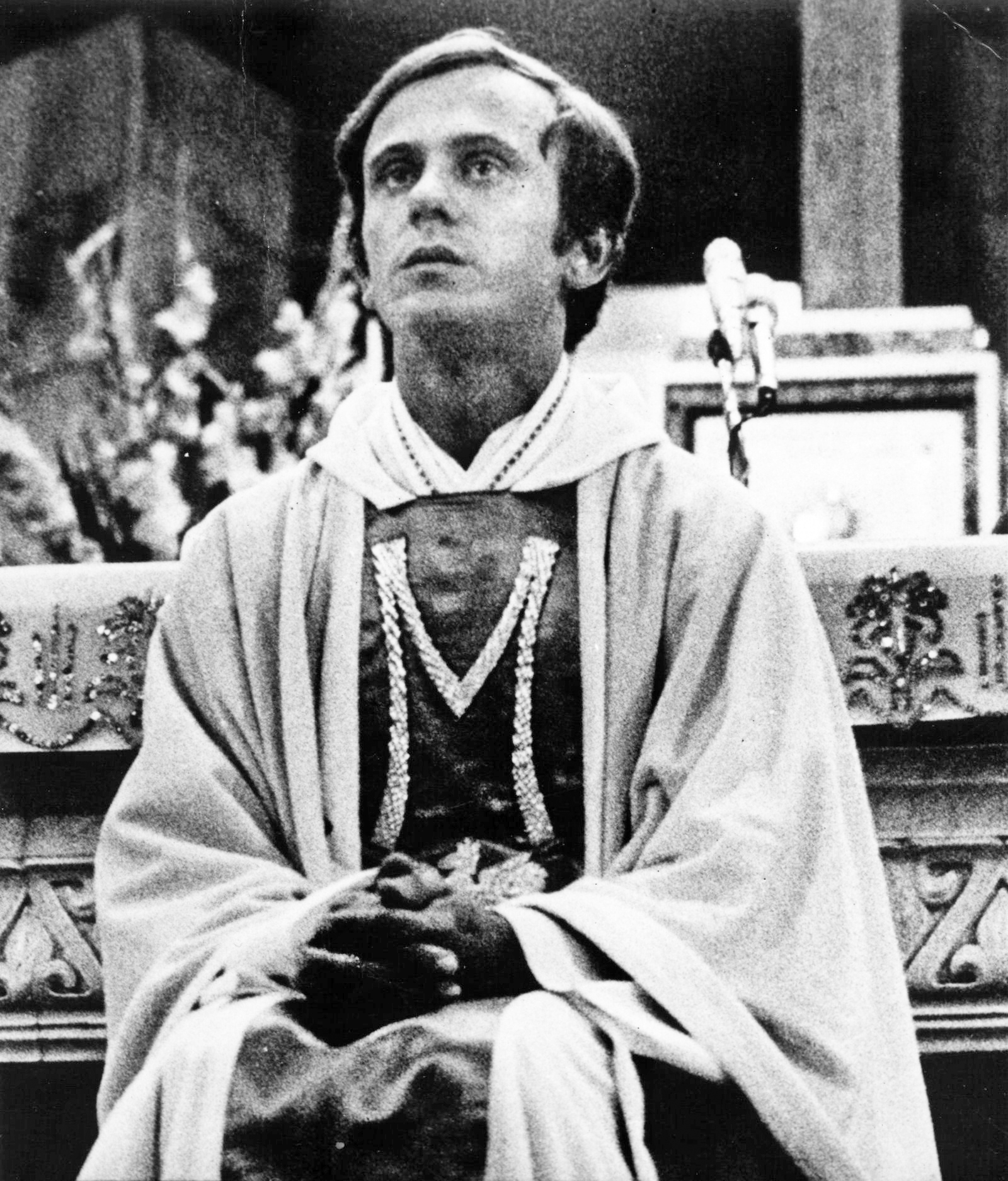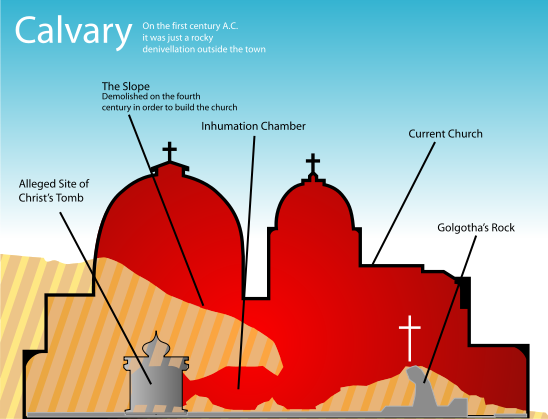 312 Constantine sees a vision
312 Constantine sees a vision
In the early 4th century the Roman empire was simultaneously carrying out a persecution of its Christian minority and witnessing a clutch of generals contending for the throne in the east and west. One of these rival warriors was Flavius Valerius Aurelius Constantinus (272-337) who invaded Italy in 312 in order to oust his opponent Maxentius who was occupying Rome. One of his biographers, Eusebius, reports that Constantine debated over whether or not he had the support of the gods and decided to appeal to the divinity worshipped by his father (in fact it was his mother who was the Christian in the family).
[Constantine] called on him with earnest prayer and supplications that he would reveal to him who he was, and stretch forth his right hand to help him in his present difficulties. And while he was thus praying with fervent entreaty, a most marvelous sign appeared to him from heaven, the account of which it might have been hard to believe had it been related by any other person. But since the victorious emperor himself long afterwards declared it to the writer of this history, when he was honored with his acquaintance and society, and confirmed his statement by an oath, who could hesitate to accredit the relation, especially since the testimony of after-time has established its truth? He said that about noon, when the day was already beginning to decline, he saw with his own eyes the trophy of a cross of light in the heavens, above the sun, and bearing the inscription, CONQUER BY THIS. At this sight he himself was struck with amazement, and his whole army also, which followed him on this expedition, and witnessed the miracle
He said, moreover, that he doubted within himself what the import of this apparition could be. And while he continued to ponder and reason on its meaning, night suddenly came on ; then in his sleep the Christ of God appeared to him with the same sign which he had seen in the heavens, and commanded him to make a likeness of that sign which he had seen in the heavens, and to use it as a safeguard in all engagements with his enemies.
At dawn of day he arose, and communicated the marvel to his friends: and then, calling together the workers in gold and precious stones, he sat in the midst of them, and described to them the figure of the sign he had seen, bidding them represent it in gold and precious stones. And this representation I myself have had an opportunity of seeing.
Now it was made in the following manner. A long spear, overlaid with gold, formed the figure of the cross by means of a transverse bar laid over it. On the top of the whole was fixed a wreath of gold and precious stones; and within this, the symbol of the Saviour’s name, two letters indicating the name of Christ by means of its initial characters, the letter P being intersected by X in its centre: and these letters the emperor was in the habit of wearing on his helmet at a later period. From the cross-bar of the spear was suspended a cloth, a royal piece, covered with a profuse embroidery of most brilliant precious stones; and which, being also richly interlaced with gold, presented an indescribable degree of beauty to the beholder. This banner was of a square form, and the upright staff, whose lower section was of great length, bore a golden half-length portrait of the pious emperor and his children on its upper part, beneath the trophy of the cross, and immediately above the embroidered banner.
The emperor constantly made use of this sign of salvation as a safeguard against every adverse and hostile power, and commanded that others similar to it should be carried at the head of all his armies.
Eusebius seems to place this vision some time before the Battle of the Milvian Bridge but another biographer, Lactantius, says it occurred on the eve of the fight.
And now a civil war broke out between Constantine and Maxentius. Although Maxentius kept himself within Rome, because the soothsayers had foretold that if he went out of it he should perish, yet he conducted the military operations by able generals. In forces he exceeded his adversary; for he had not only his father’s army, which deserted from Severus, but also his own, which he had lately drawn together out of Mauritania and Italy. They fought, and the troops of Maxentius prevailed. At length Constantine, with steady courage and a mind prepared for every event, led his whole forces to the neighbourhood of Rome, and encamped them opposite to the Milvian bridge. The anniversary of the reign of Maxentius approached, that is, the sixth of the kalends of November, and the fifth year of his reign was drawing to an end. Constantine was directed in a dream to cause the heavenly sign to be delineated on the shields of his soldiers, and so to proceed to battle. He did as he had been commanded, and he marked on their shields the letter Χ, with a perpendicular line drawn through it and turned round thus at the top, being the cipher of CHRIST. Having this sign (ΧР), his troops stood to arms. The enemies advanced, but without their emperor, and they crossed the bridge. The armies met, and fought with the utmost exertions of valour, and firmly maintained their ground. In the meantime a sedition arose at Rome, and Maxentius was reviled as one who had abandoned all concern for the safety of the commonweal; and suddenly, while he exhibited the Circensian games on the anniversary of his reign, the people cried with one voice, “Constantine cannot be overcome!”
